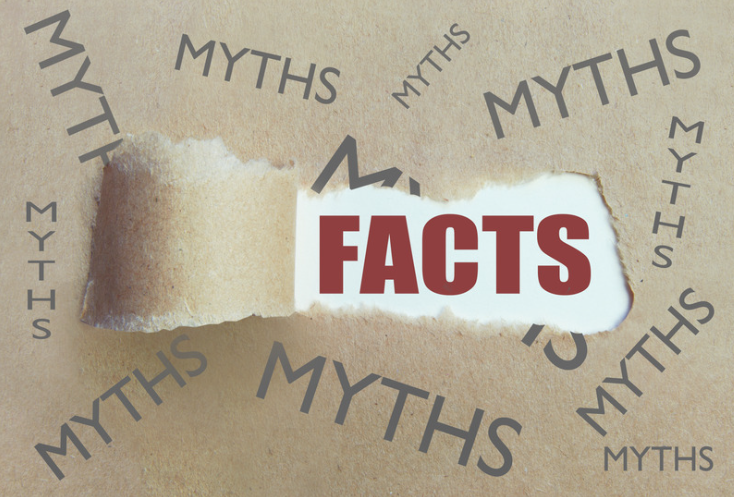To view the full series, check out our archive! As a reminder to new readers, you can start anywhere, even here as articles do not need to be read in any particular order.
Welcome back class!
Last week we discussed the first ghost- regret. Getting over our past actions and mistakes. I hope you enjoyed the lesson and don’t regret signing up for my class. (Sorry, I can never regret the opportunity to tell a pun. It is something I am working on. Lol).
Do you ask yourself the “Why Me” questions. Questions such as why me? How come he/she hurt me? What did I do wrong? Why did this happen? What if this happens again? How do I handle this? Etc.
Sometimes there is a specific reason this happened to you. Maybe you hurt someone else, and they are bent on revenge. But more often than not, it isn’t. While it is not necessarily a bad thing to reflect on these questions, remember the only purpose to do so is to learn from a situation. There may be things you can do to decrease your chances of being a victim in the future.
Let’s say someone is mugged walking home from a party. (Yes, I watch too many fictional criminal shows). They get home and after getting over the initial scare, they start to ask themselves why it happened to them. Let me make it clear that the fault belongs entirely on the mugger. That being said, it is not a bad idea to reflect on what happened. Maybe you took a short cut that made it easier for the mugger to target you. You walked down the dark alley rather than the lighted and more crowded sidewalk. You might decide to walk down a safer street next time or maybe you’ll walk with a friend. Or maybe there wasn’t anything you could have done differently. It is not to assign blame, or blame yourself for someone else’s actions, but to learn and to heal.
Let me clarify what I mean by intentional hurt. Intentional hurt is when someone purposefully intends and inflicts pain (whether it be emotional, mental, financial, or physical). It is not when words are exchanged back and forth in the heat of an argument. Maybe you call your significant other a sloth and he/she retorts back that you are a donkey’s butt. Then you come back with “rhinoceros breath” as you slam the door behind you. (Excuse the vulgar language). It is when you get a black eye for angering someone or your character is continually debased because you don’t do what someone else wants you to do. In this type of scenario, you might frequently be told that you are worthless and useless, that you are stupid, or that you are ugly and will never amount to anything. This is very different than being called a donkey butt, the Loch Ness Monster, or a cotton headed ninny muggins. (I know, I know- language. Lol).
The most important thing to understand about hurt is that it is not about you, it is about the person inflicting the pain (whether it be emotional, mental, financial, or physical). I am going to refer to the person inflicting pain as the “other.” Offender or perpetrator just sounds too much like the kidnappers and murderers in the crime shows I watch. Lol. The other is a damaged soul. No one who intentionally inflicts pain on another is a mature, healed person. There may be things you can do to make yourself less of a target but, regardless, it is not about you.
What if you are truly hurt by another? It is not a simple school yard ribbing. If you are still in the situation, you need to evaluate how you are going to handle it. You need to stop the hurting. In this type of situation, you deal with the present first. Then, you can deal with the past.
I use the example of a family member because interpersonal relationships with family members along with romantic interests are the most difficult. Love can be complicated because it is so powerful. Relationships are not black and white. Also, when we put expectations on others, especially those with whom we are in relationships. To make things more complicated, different cultures put expectations on how a family should behave. If we choose to belong to a religion, the religion puts rules and/or expectations on the family. If you think about it, it is amazing we get along at all. So, if you are feeling down or frustrated about your relationship with a family member, your significant other, or other people in your life, I ask you to step back for a moment. Think of how many times you do get along!
One question you might have: When do you continue a relationship with a family member or remove them from your life?
This is a difficult and personal question. There are some boundaries, in my opinion, that you don’t cross. These include molestation, violence (recurrent hitting another person), or cruelness to children. We all have challenging relatives to deal with. See my mention of this in the holiday thriving edition.
If it is dangerous situation or you need help, please see the resources page of this blog.
Life is not always easy but there is a lot of help out there and many people who have shared similar experiences to yours. No, not everybody has your exact situation. But it is close enough so that someone can emphasize and offer you real life solutions. You can use the 3 steps even if you are the middle of the situation, they just won’t be as potent because they can’t help you get over a bad situation if you are still in it. However, these steps can be an excellent tool to keep in your toolbox.
Meet me back here next week to further discuss the ghost of hurt and applying the 3 steps!










Comments
Post a Comment